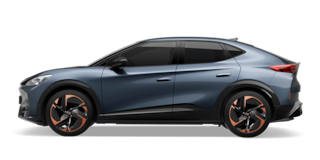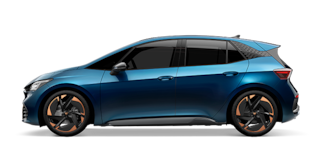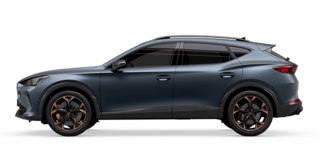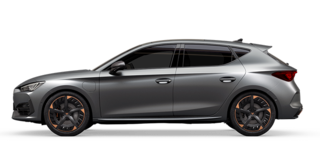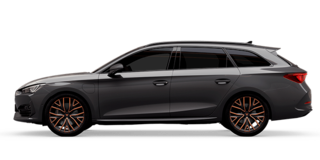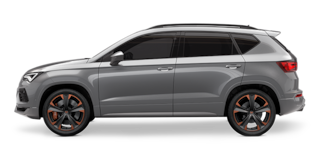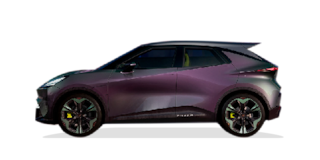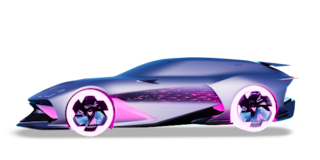CUPRA powers up for the PURE ETCR.
The world of motorsport is undergoing a rapid transformation. We’re heading towards a more sustainable and innovatively exciting era. And of course, we are thrilled that CUPRA is playing an increasingly important role in this new era. After all, we were the first car manufacturer to announce our participation in Extreme E in September 2019: a 100% electric SUV championship where drivers compete in locations that are being affected by climate change. Now, we’re happy to roll into a new phase, by stepping into the touring car arena and participating in PURE ETCR.
In collaboration with the Zengő Motorsport Team, we harnessed the challenge of this new championship by bringing the world’s first 100% electric racing touring car: the CUPRA e-Racer, to the track. We were also bolstered by our team, which comprised four world-class drivers: Mikel Azcona, Jordi Gené, Mattias Ekström and Dániel Nagy.
“PURE ETCR is the beginning of a new era for touring car racing: one in which we at CUPRA are proud to herald, just as we once led the way with the successful TCR concept,” said Dr Tietz, Executive Vice-President for Research and Development at CUPRA and SEAT. Before the ETCR championship started, he also said that “This new championship is going to be very exciting and we’re looking forward to seeing epic battles on the track. We have the right team to achieve great success and as in everything we do, we are going to fight for victory!”.
We first presented the CUPRA e-Racer at the Geneva Motor show when it was just a concept vehicle, back in March 2018. Then, to coincide with CUPRA’s second anniversary in February 2020, we exhibited the car in all its racing glory. It offers dreamlike performance and it thrilled PURE ETCR spectators. Thanks to its four electric motors on the rear axle and its 65kWh liquid-cooled battery, it generates a combined maximum power output of 500kW (680 PS) and delivers a maximum torque of 960Nm. Accelerating from 0 to 100 km/h in just 3,2 seconds, it’s capable of reaching a top speed of 270km/h.
Since its first circuit run back in 2018, the CUPRA e-Racer has completed more than 5,000 kilometres: with our drivers bringing their knowledge throughout the process. The team tested it on tracks such as Montmeló, Calafat and Castellolí (Spain) and Rijeka (Croatia). Then after trialling a new purpose-built battery and checking the electronic systems associated with it; such as the Vehicle Control Unit and safety systems, we took the car to Motorland Aragón (Spain) and Vallelunga (Italy) during the first half of 2021 for final testing.
“The design and development of the CUPRA e-Racer has to be one of the most exciting and challenging projects I have been involved in. It’s been a long road, with thousands of kilometres given over to testing in different parts of Europe. We’ve also driven it under various conditions, to discover the true potential of this amazing racing car,” said Xavi Serra, CUPRA Racing Head of Technical Development.
The perfect team for a big challenge
CUPRA fielded two e-Racers in the PURE ETCR, backed by a team that combined youth and experience to help CUPRA achieve its single objective: to fight for the first championship title in the history of electric touring. For the whole team, PURE ETCR was an unprecedented challenge, not only because it involved completely new technology, but also because the competition format was so revolutionary.
In PURE ETCR, participants were drawn into groups and pitted against each other in short, exciting races of 8-10 kilometres. Drivers had tools such as "Power-ups" to help give an extra boost when needed. And with each race taking place over 12-15 kilometres, positioning for the final rounds were dependent on the results achieved during the “battles” in the early stages. The winner of the overall event was announced as "King of the Weekend": receiving the highest number of points (30).
Equality among the participants was guaranteed, as all vehicles were very similar in terms of technical setup. By regulation, they all had to be completely electric, rear-wheel-drive cars and had to transmit a power output of 500kW with a 65kWh battery. The only areas where margins of adaptation and work by each brand was allowed was in the design of the chassis, aerodynamics and bodywork dimensions of each vehicle.
